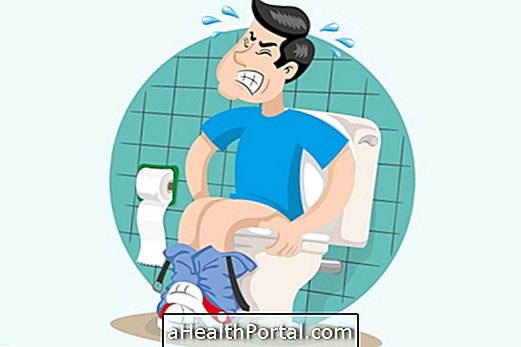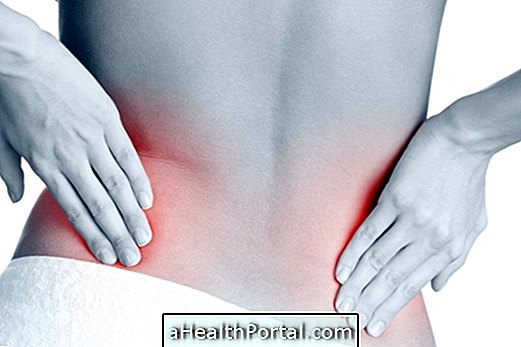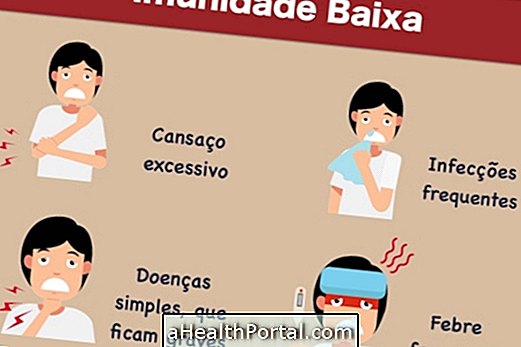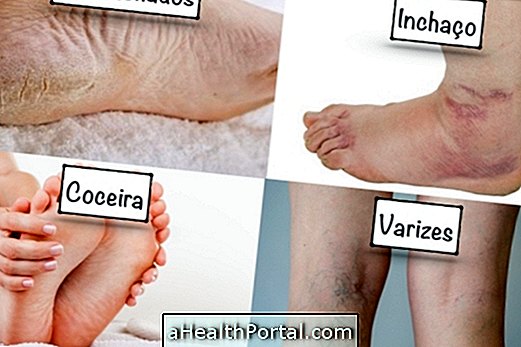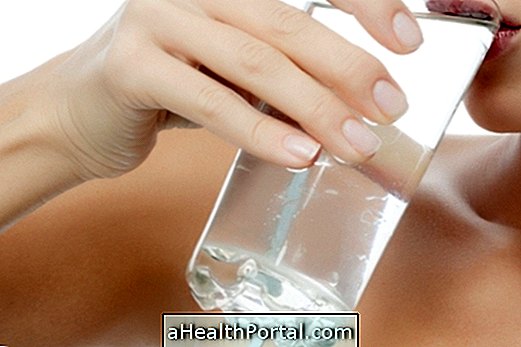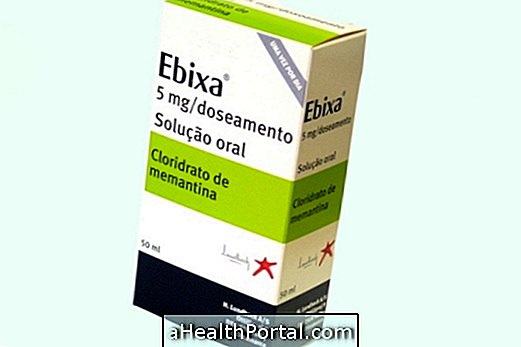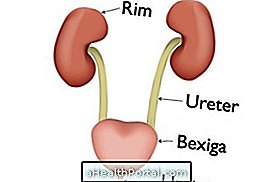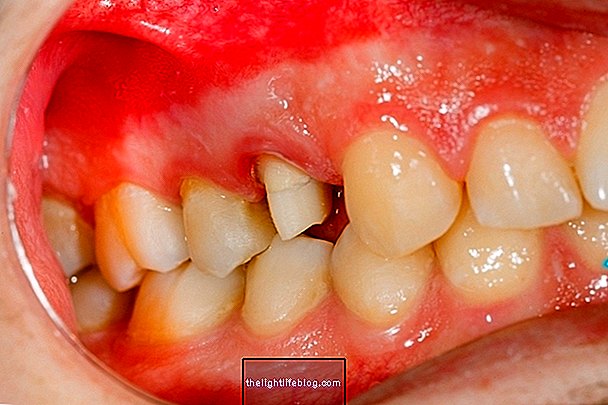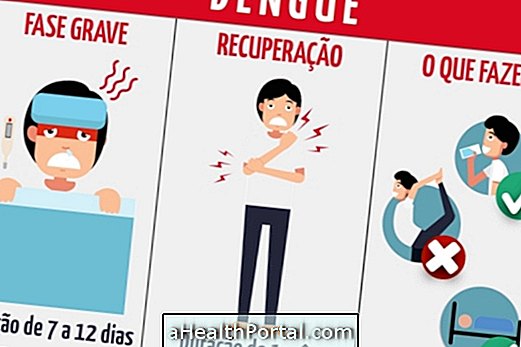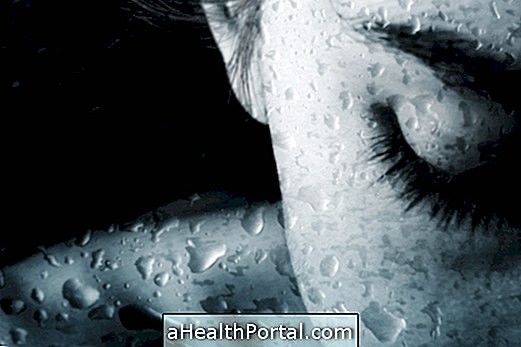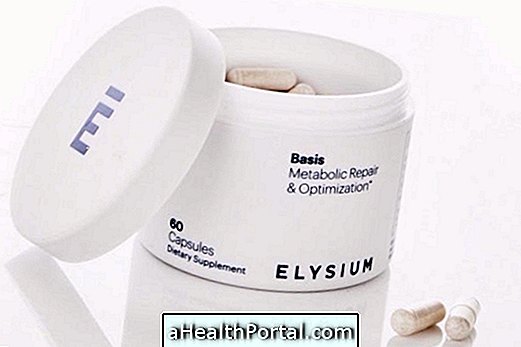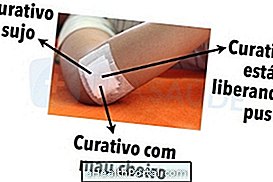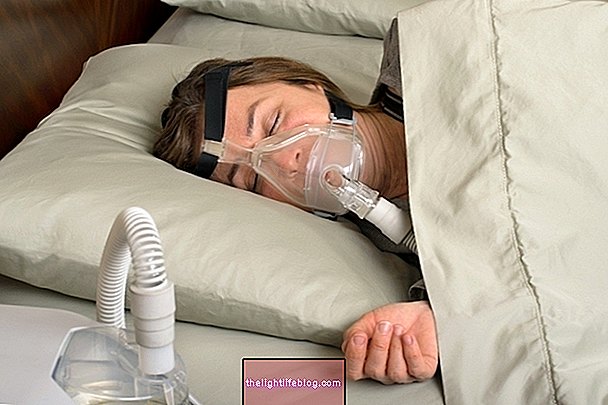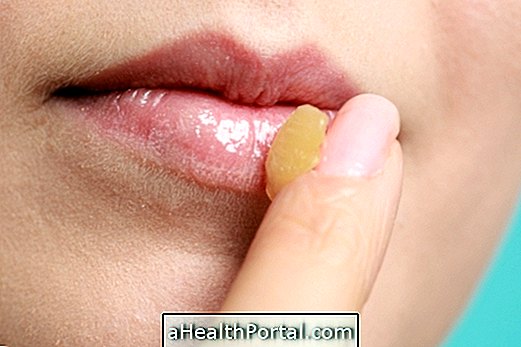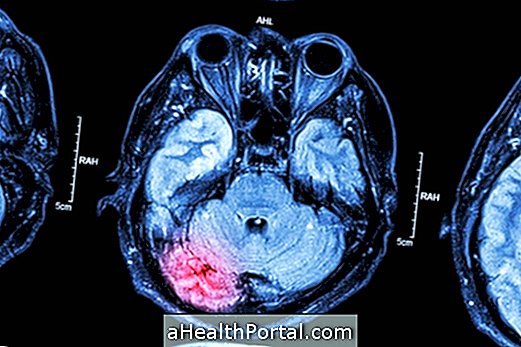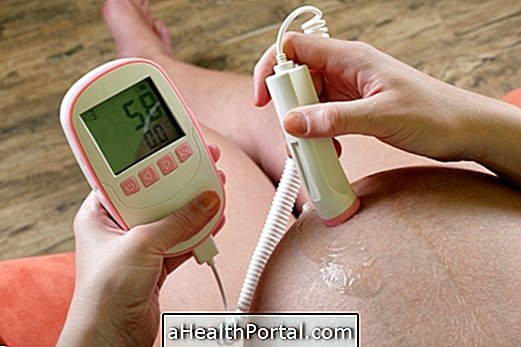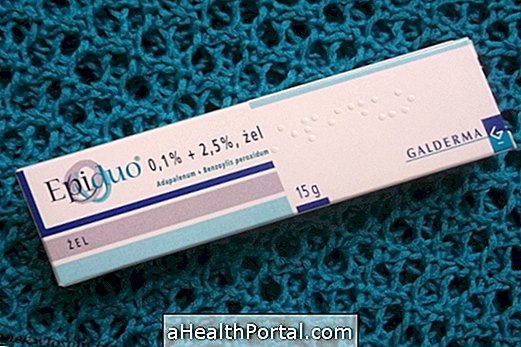Chills are shivers and contractions and involuntary muscle relaxations. They are very fast and go through the whole body and head, being one of the mechanisms of the body to generate heat when it feels cold and, in some cases, announce the beginning of an episode of fever.
Chills may occur early in an infection and are usually associated with fever, causing episodes of palpable tremors and a feeling of coldness. They can be caused due to a cold sensation, but also in case of fever, flu, cold, viral or bacterial infections, inflammation in the throat, mononucleosis, pneumonia, meningitis or pyelonephritis, for example.
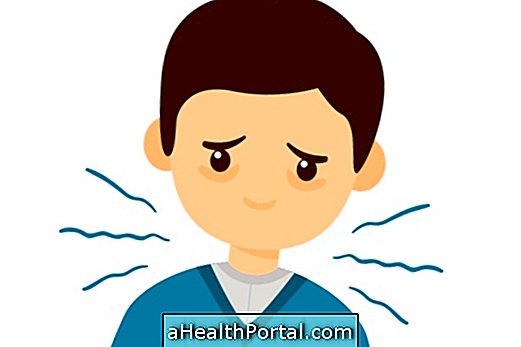
What can cause chills
The main causes of chills include:
1. fever
Increased body temperature can cause chills, shivering whole body. Fever can be emotional, affecting mostly children and the elderly who are experiencing difficulties, but it usually indicates that the body is struggling with an infection, or that the person is overworked.
- What to do: You should take a slightly warm bath and avoid staying in hot places or under a blanket, for example. Taking tea prepared with raspberry leaves is also good for lowering the fever, but if it is not enough it may be recommended to take Dipirone or Paracetamol under medical indication, especially as it is necessary to find out what is causing a fever. Learn about other natural ways to reduce fever.
2. Cold and Flu
Being in a cold place with strong air conditioning and poorly fitting clothing can also cause a feeling of cold, shriveled skin and chills, but that feeling may also be present in the flu, for example. Other symptoms that help to identify the flu are: cough, sneezing, catarrh, runny nose, chest pain and difficulty breathing. If a fever is present, it is a sign of respiratory infection or pneumonia and one should go to the doctor to take the most indicated medicines. Learn all the Symptoms of Pneumonia.
- What to do: When you are chilled, it is advisable to try to warm yourself up, but measuring the temperature is also a prudent attitude. In case of a strong flu you can take flu medicines that can be bought at the pharmacy, and you need to rest and drink more water to recover faster. But if pneumonia is proven, one should take antibiotics indicated by the doctor.
Throat infection
The sore throat, small white or yellow spots on the throat may indicate tonsillitis, for example, which can also cause chills and a feeling of discomfort.
- What to do: Gargling with lukewarm water and salt can help clear the throat by eliminating microorganisms, but in that case you should go to the doctor for an evaluation because you may need to take antibiotics. Check out more natural recipes for throat.
4. Urinary tract infection
In the case of urinary infection, symptoms such as pain or burning when urinating appear, in addition to cloudy or lumpy urine. Malaise, headache and chills may indicate a worsening of the situation, and that the bacteria may have developed and affected the kidneys, characterizing a pyelonephritis.
- What to do: You should go to the doctor because antibiotics are needed for 8 to 10 days, but ingesting more water and cranberry juice is a good natural strategy to complement the treatment. Learn the remedies indicated for urinary tract infection.
5. Hypoglycemia
Decreased blood sugar can affect anyone, but it comes more often in the case of diabetes. Other symptoms that may be present in case of hypoglycemia are cold sweat, feeling dizzy, chills and malaise. Usually this energy decrease occurs shortly after the person ingests a large amount of sugar or carbohydrate, which can be take 1 soda and eat 1 bread, for example, or when staying more than 3 hours without eating anything as well. Know the symptoms of hypoglycemia.
- What to do: You should increase the amount of blood sugar by ingesting some carbohydrate source, which may be sucking a bullet, or take 1 cup of natural orange juice and eat 1 buttered toast, for example. It is not recommended to eat chocolate, pudding or other very sweet foods so as not to disrupt diabetes.
6. Changes in the prostate
Men with inflamed prostate may experience symptoms such as painful urination, decreased urination, lower back pain, chills, and pain in the testicles.
- What to do: You should go to the urologist for an appointment and perform tests that may indicate any change in the prostate and initiate appropriate treatment, which may involve taking medications or surgery in the most severe cases. Learn all about enlarged prostate.
7. Hypothyroidism
Decreased thyroid function, which is hypothyroidism, can cause symptoms such as lack of disposition, fatigue, chills, difficulty concentrating, memory failure and weight gain.
- What to do: In addition to eating 1 peanut butter a day, it is recommended to take the medicines to regulate the thyroid, under medical indication. An appointment with a clinician or endocrinologist may be indicated to investigate symptoms, perform blood tests that measure TSH, T3, and T4, and thyroid ultrasound may be helpful in identifying nodules that may interfere with the functioning of that gland. Check out some natural recipes to control hypothyroidism.
In addition to these causes, there are also numerous other diseases that can cause chills, so it is always important to seek medical help to identify what is causing this symptom and how treatment should be done.
When to go to the doctor
If the chills become constant, you should go to the doctor because it may be related to some disease that needs specific treatment. Therefore, whenever the chill stays for more than 1 day, the possibility of consultation with the general practitioner should be considered.


